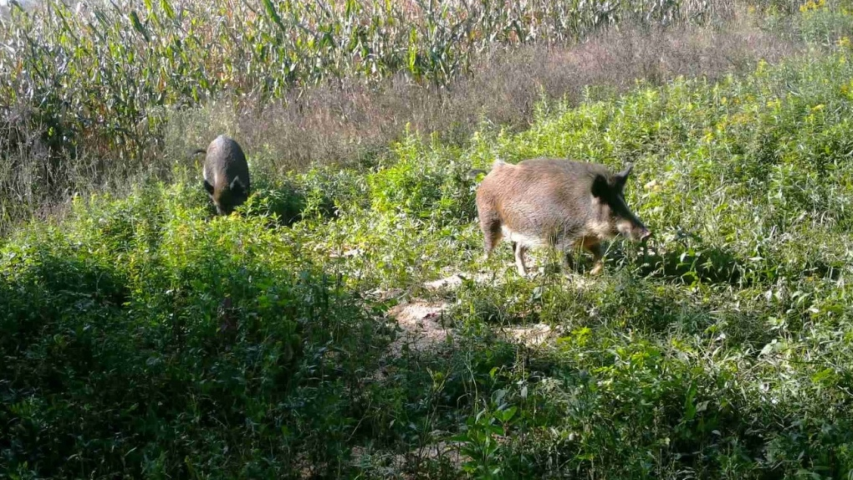
In a photo provided by the Quebec Ministry of Environment, fight against Climate Change, of Wildlife and Parks, two wild boars are captured on a trail camera on September 30, 2023. (Image courtesy of The Canadian Press / HO)
Wild boars, known for their relentless invasion across Canada's prairies, pose an imminent threat as they inch closer to the U.S. border. With their voracious reproductive capacity and adaptability, these "super pigs" could wreak havoc on American soil. Efforts to stem their advance are underway, but the clock is ticking as experts warn of the catastrophic consequences of their infiltration.
Saskatchewan agriculture professor Ryan Brook underscores the peril, cautioning that just one pregnant sow could trigger a dramatic shift in Montana's ecosystem. Wild boars, notorious for their resilience and destructive tendencies, could devastate crops, spread diseases, and disrupt natural habitats if allowed to establish populations in northern U.S. states.
Paige Kuczmarski, an invasive species technician, underscores the gravity of the situation, highlighting the potential transmission of up to 89 diseases to wildlife, humans, and livestock. The origins of this crisis can be traced back to the 1980s when wild boars were imported from Europe to diversify Canada's livestock. However, the subsequent collapse of the pork market led to their unchecked proliferation.
Despite efforts to contain them, wild boars have spread over vast territories, with sightings reported dangerously close to the U.S. border. The United States Department of Agriculture (USDA) confirms sightings in at least 35 states, with an estimated swine population of six million. The looming threat has prompted the establishment of collaborative initiatives like the Invasive Feral Swine Transboundary Working Group and the 'Squeal On Pigs' awareness program.
Controlling these invasive species presents formidable challenges, as they possess remarkable intelligence and nocturnal habits. Moreover, hunting efforts often backfire, as wild boars adapt their behavior to evade capture. In Minnesota, stringent laws prohibit wild pig hunting to prevent inadvertent incentives for their introduction.
Public concern regarding the ecological and economic ramifications of wild boar invasion remains palpable. The USDA estimates annual damages exceeding US$2.5 billion, underscoring the urgent need for concerted action.
In the face of this burgeoning crisis, proactive measures must be swiftly implemented to thwart the encroachment of these relentless invaders. Failure to act decisively could result in irreparable damage to ecosystems, agricultural lands, and public health on both sides of the border.















